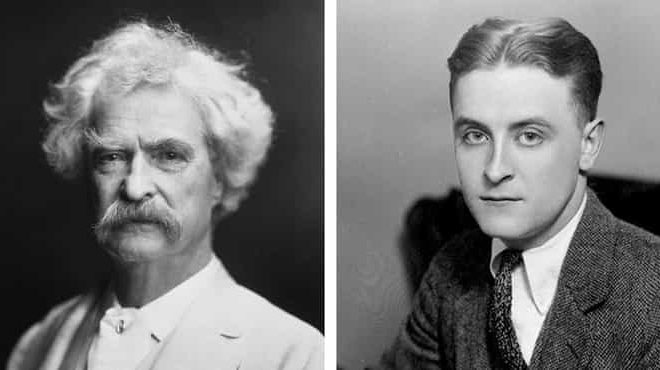The 15 Best American Authors of All Time

America has long been a crucible of narrative innovation, giving birth to some of the most iconic writers in literary history. These authors have explored the vast realms of the American experience, human emotion, and the universal conditions that tie us all together, using their unique voices to create works that have resonated through the ages. Here are the 15 best American authors of all time, each leaving an indelible mark on literature and culture.
1. Mark Twain (Samuel Clemens) – Known for his sharp wit and incisive social commentary, Twain’s “The Adventures of Huckleberry Finn” is often called “The Great American Novel.”
2. Ernest Hemingway – A Nobel Prize laureate, Hemingway’s sparse writing style and themes of masculinity, war, and love can be seen in works like “The Old Man and the Sea.”
3. Emily Dickinson – With her unique, compressed language and idiosyncratic punctuation, Dickinson’s poetry has left a massive influence on American poetry.
4. F. Scott Fitzgerald – Chronicler of the Jazz Age, Fitzgerald’s “The Great Gatsby” critiques the American dream while mesmerizing readers with its lyrical style.
5. Toni Morrison – The first African American woman to win the Nobel Prize in Literature, Morrison’s novels like “Beloved” tackle themes of race, identity, and history with lyricism and depth.
6. Edgar Allan Poe – A master of Gothic fiction, Poe’s tales like “The Tell-Tale Heart” and poems such as “The Raven” showcase his macabre inventiveness and profound influence on both horror and detective genres.
7. Herman Melville – His magnum opus “Moby-Dick” dives deep into man’s struggle against nature, with rich symbolism and philosophical overtones.
8. Walt Whitman – Whitman’s “Leaves of Grass” was groundbreaking for its prose-like verse form and candid explorations of identity and democracy.
9. Harriet Beecher Stowe – Her novel “Uncle Tom’s Cabin” furiously condemned slavery and fueled abolitionist movements before the Civil War.
10. Ralph Waldo Emerson – A leading figure of Transcendentalism, Emerson’s essays like “Self-Reliance” echo with the need for individualism and nonconformity.
11. William Faulkner – Faulkner brought narrative complexity with stream-of-consciousness technique in his depiction of the Southern Gothic tradition in works such as “As I Lay Dying.”
12. John Steinbeck – Best known for “The Grapes of Wrath,” Steinbeck’s social perception and sympathy for the working class gave a voice to rural America during times of adversity.
13. Maya Angelou – Through her autobiographical work “I Know Why The Caged Bird Sings,” Angelou gives poignant commentary on race, gender, and overcoming personal trauma.
14. Nathaniel Hawthorne – In books like “The Scarlet Letter,” Hawthorne explored Puritan New England’s moral complexity with psychological depth.
15. Henry James – An expatriate writer known primarily for his novels about Americans encountering European society; his intricate narrative structure is seen in works like “The Portrait of a Lady.”
These authors constitute an essential backbone to American literature; their contributions continue to inspire readers and writers across generations. They have dissected cultural issues, reflected societal concerns, celebrated human spirit triumphs, addressed universal existential questions – all defining what it means to grapple with the American experience through words.



